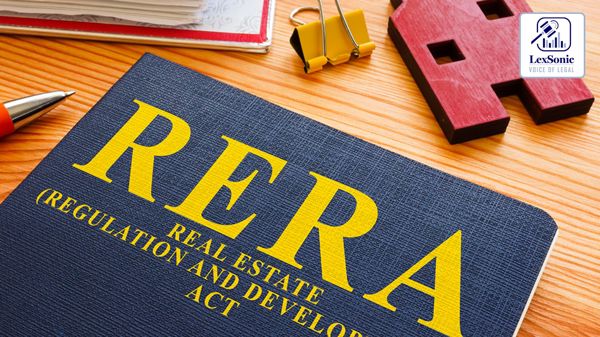High Court Intervenes in RERA Appeal Delay Case, Advocates for Fair Assessment.
09 August 2024
RERA >> Property & Real Estate
In a recent legal development Viresh Kamalanath Nadkarni v/s Sugandaha Pravinkumar Shirodkar, the High Court has addressed a contentious issue involving the delay in filing an appeal before the RERA Appellate Tribunal. The case centers around a petition challenging the Appellate Tribunal's decision to reject an application for condonation of delay submitted by the petitioner.
Background:
The dispute arose from an order issued by the Goa RERA Authority on April 24, 2023. This order required the petitioner to deliver possession of a flat to the respondent and to pay a significant amount in interest and penalties. The petitioner sought to challenge this decision before the RERA Appellate Tribunal, which is located in Mumbai. However, the petitioner faced difficulties in filing the appeal within the stipulated 60-day period.

The Issue at Hand:
The petitioner, represented by Mr. Agni, contends that the RERA Appellate Tribunal's rejection of the delay condonation application was unjust. The core of the argument lies in the tribunal's handling of the reasons provided for the delay. Mr. Agni asserts that the Appellate Tribunal failed to properly consider the explanations for the delay, including the difficulty in securing legal representation and health issues faced by the petitioner.
Appellate Tribunal's Findings:
The Appellate Tribunal's order, dated February 26, 2024, highlighted confusion regarding the actual number of days of delay. The petitioner initially reported a 90-day delay, while the actual delay was approximately 58 days. The tribunal's order criticized the petitioner for the delay but did not adequately address the reasons provided for the period beyond the statutory limit.
Arguments Presented:
Mr. Agni argued that the Appellate Tribunal misinterpreted the legal standards for "sufficient cause" as outlined by the Supreme Court. He pointed out that the tribunal focused on the petitioner's delay in filing the appeal even within the limitation period, rather than solely on the delay beyond the limitation period.
On the other hand, the respondent's counsel, Ms. Mandrekar, contended that the petitioner had not provided sufficient evidence or a valid explanation for the delay. She argued that the tribunal's decision was justified and that the petitioner's failure to provide documentary evidence regarding his ailment undermined his application.
Court's Ruling:
The High Court scrutinized the tribunal's decision and found that it had failed to adequately consider the reasons given by the petitioner for the delay. The court noted that the principles laid out in relevant Supreme Court judgments were not properly applied. Specifically, the Appellate Tribunal had not sufficiently considered the challenges the petitioner faced in obtaining legal representation and the impact of his health issues.
Conclusion:
In light of these findings, the High Court quashed the Appellate Tribunal's order and allowed the petitioner's application for condonation of delay. The decision underscores the importance of a thorough and fair assessment of "sufficient cause" for delay, ensuring that legal remedies are not denied on procedural grounds when substantial justice warrants otherwise. The ruling reaffirms the principle that legal proceedings should accommodate genuine delays caused by factors beyond a party's control, reinforcing the need for a balanced approach in upholding justice
